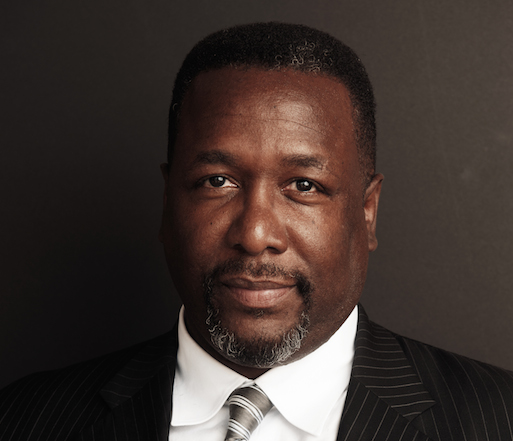Interview with Wendell Pierce, Part Three: Solutions, Local and Beyond (and Zimbabwe)
Maggie Borden
Maggie BordenOctober 14, 2014

The 2014 JBF Food Conference, taking place October 27–28 in New York City, will explore the intersection of food and health. Our speakers and panelists will discuss the myriad ways in which food supports personal and public health; fails to deliver on the promise of better health; and both drives and responds to other cultural forces in America today.
In anticipation of this two-day event, we're holding Health Month here on the JBF blog. In the below post, we conclude our extended interview series with actor and activist Wendell Pierce, exploring his views on potential solutions to issues of food access, both locally and globally.
Read part one and part two of the interview.
--
JBF: How can government-based initiatives and the private sector best work together to combat issues of food security?
WP: It’s a crisis, so all hands on deck. Of course there’s going to be discussions of strategy, what some people think is beneficial, what others think. I say that we try them all, because all of them contribute to everything. Sterling Farms takes advantage of the Healthy Fresh Food Initiative. It’s part of the Farm Bill specifically written for American businesses that choose to bring a grocery store into a designated food desert.
Then there’s the Let’s Move! campaign, which is educating kids early on. And then you have advocacy from nonprofit groups like the Alliance for a Healthier Generation, where I’m a board member. We have programs in over 3,000 schools. The Healthy Fresh Food Initiative of the Farm Bill, the advocacy of the First Lady, and the nonprofit world—I’m happy to be a part of all of them. Instead of having a debate about which strategy works best, I challenge people to ask, “What is going to be your contribution to changing the paradigm?” By the mere fact that we’re different, we’re going to have a multitude of different solutions brought to the table.
JBF: In New Orleans or beyond, are there any companies or initiatives that you’ve been inspired by?
WP: One of the things I’m proudest of is the new culinary arts discipline at my high school, New Orleans Center for Creative Arts. These young chefs are learning to put together a five-star tasting menu along with the best red beans and rice, and actually have their own sustainable urban farm. We’re teaching the chefs of the future to interact with the community, and showing them how the culinary arts can actually change the paradigm.
We have to teach that new generation to look beyond fine dining and the celebrity world and notice the local, everyday people who have really influenced cuisine and cooking. That’s what makes Anthony Bourdain so appealing. You know that you can take him anywhere and he appreciates how people connect with their food, and how they deliver that food to their community.
I was in Zimbabwe, which is isolated from the world right now, and I’ll never forget seeing rush hour on a Friday in Harare. People can’t use their cars, and the buses are few and far between because they can’t afford the gas. Masses of people are literally walking home down the middle of the street. And in the median? Corn, collard greens. They’ve taken any piece of land and they are farming. It amazed me because I immediately saw that this was the ultimate food desert. That should be celebrated as one of the most courageous and bravest acts demonstrated through food, and it left an impression on me.
I think about all the community gardens around the country, and the endless possibilities if we called on grocers to give them a distribution arm. I’m a believer that everyone has a role to play. The more the merrier. Those people in Zimbabwe, the community gardener in South Los Angeles, that farmer’s market in Michigan, and Whole Foods and Publix and Le Bernadin and Daniel—we are all of the same world. And there but by the grace of God go I.
--
Maggie Borden is assistant editor at the James Beard Foundation. Find her on Twitter and Instagram.




-57 web.jpg)


